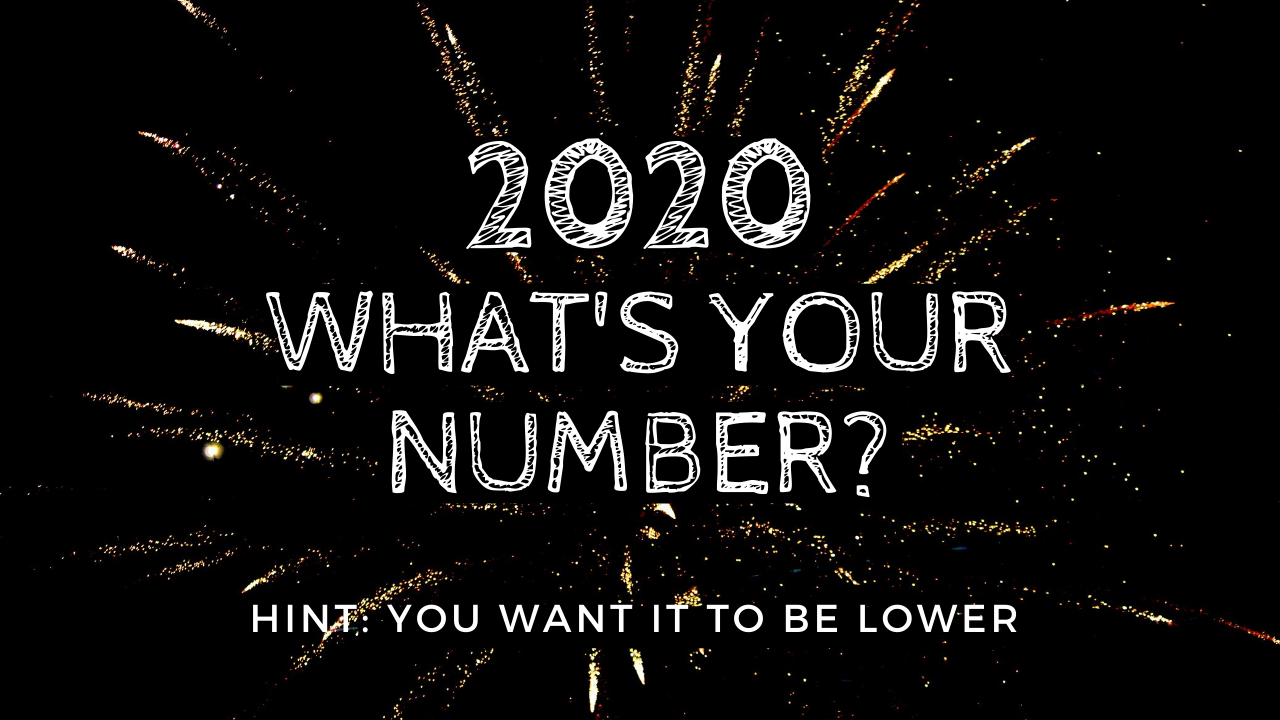What's your number? Hint: You want it to be lower
Dec 23, 2019
My oldest son, Liam, is heading back to BYU Idaho for his second year of college. He's a smart kid. In a recent conversation, he commented that about 85% of statistics are completely made up. Like I said, smart kid.
But that's why, for the purpose of making specific decisions, I think statistics can be dangerous. You see, statistics can be manipulated. A number of things matter when developing statistics: How do you define your pool? How do you word the inquiries? How do you define the words? And depending on the answers to those questions (and many more), you can dramatically change the resulting statistics. And so, I'm careful not to rely on statistics too much in making specific decisions.
That said, I LOVE statistics for big picture analysis. Because that's what statistics are really good for—giving us an idea of the big picture. What's generally going on? How are things trending? What is the most likely result in a given set of circumstances? Etc.
And so, here are some statistics to look at that might give you some insight into the big picture, and how you fit into that picture? What's your number?
- About 47% of Americans make New Year's resolutions.
- About 25% of those people have already quit or failed in their efforts in just the first week.
- Only about 8% of the people actually achieve their goals.
- About 79% of people believe having an estate plan in place is important.
- Only about 40% of people actually do.
- Of those aged 18–34, only about 18% have an estate plan in place.
- Of those aged 35–44, only about 34% have an estate plan in place.
- Of those aged 45–54, only about 39% have an estate plan in place.
- Of those aged 65+, only about 66% have an estate plan in place.
- Of those who know estate planning is important but haven't done it yet,
- 50% say, "I just haven't gotten around to it yet."
- 22% say, "I don't have enough assets to leave to anyone."
- 6% say, "I don't know how."
- 6% say, "It's too expensive."
- And finally, some numbers about potential likely causes of death:
- The top ten causes of death in the U.S. are, in order: (1) heart disease, (2) cancer, (3) unintentional injury, (4) chronic lower respiratory disease, (5) stroke, (6) Alzheimer's disease, (7) diabetes, (8) influenza/pneumonia, (9) nephritis, and (10) suicide.
- BUT, these items change based on age. For people up to age 44, the number one killer far and away is unintentional injury. Accidents. We have little to no control over that.
So what number are you? You are absolutely part of the 100% of us who is going to die someday, somehow. Death is a part of life. Are you part of the 79% who recognizes it's important to put a plan in place for that time? Are you part of the 50% who haven't gotten to it yet? Are you part of the 47% who are making New Year's resolutions? Are you part of the 25% who will fail or quit in the first week? Or are you a part of the 8% who will follow through in 2020 and accomplish your goal to get your estate plan in place? Just think about it.
Be an 8 percenter. (I know, I'm making up words now, but my teenagers do it all the time.)
Knowledge is not power. It is empowering. It's what you do with it that matters.
I'm here to help.
Want to learn a little more? The best way is to meet with me for a Legacy Design Session. We'll talk about YOUR unique situation, identify likely issues and problems, and put a plan in place that will actually work when you need it. Your kids will thank you.
Not ready for that? Then spend an hour with me on a live webinar. It's free. It's fun. And you'll learn a ton. In fact, you'll know more about estate planning than most lawyers know and you'll also know what to do next to protect your kids, your family, and your stuff when you become incapacitated or die.
I look forward to meeting with you soon. Make 2020 YOUR year.

